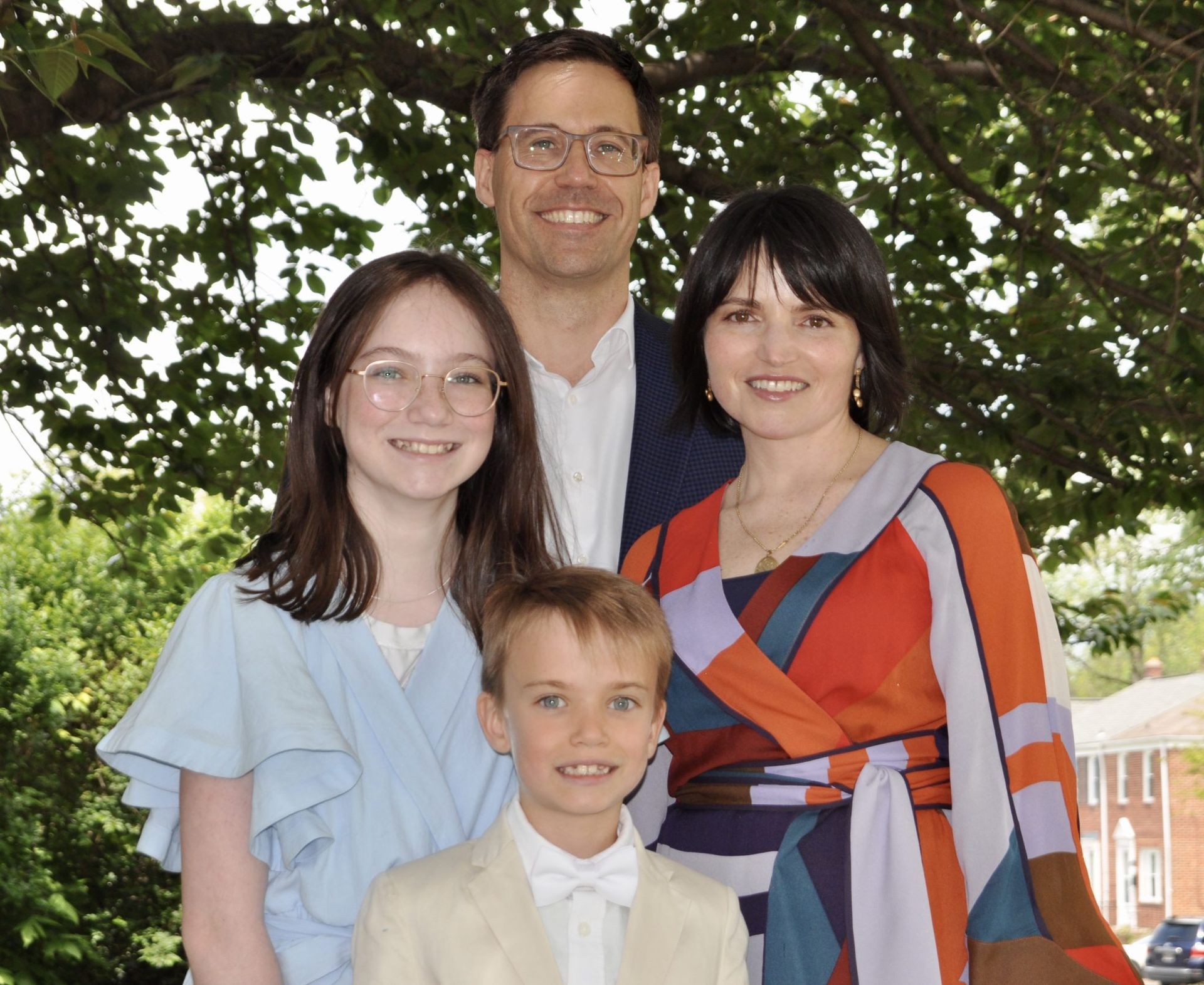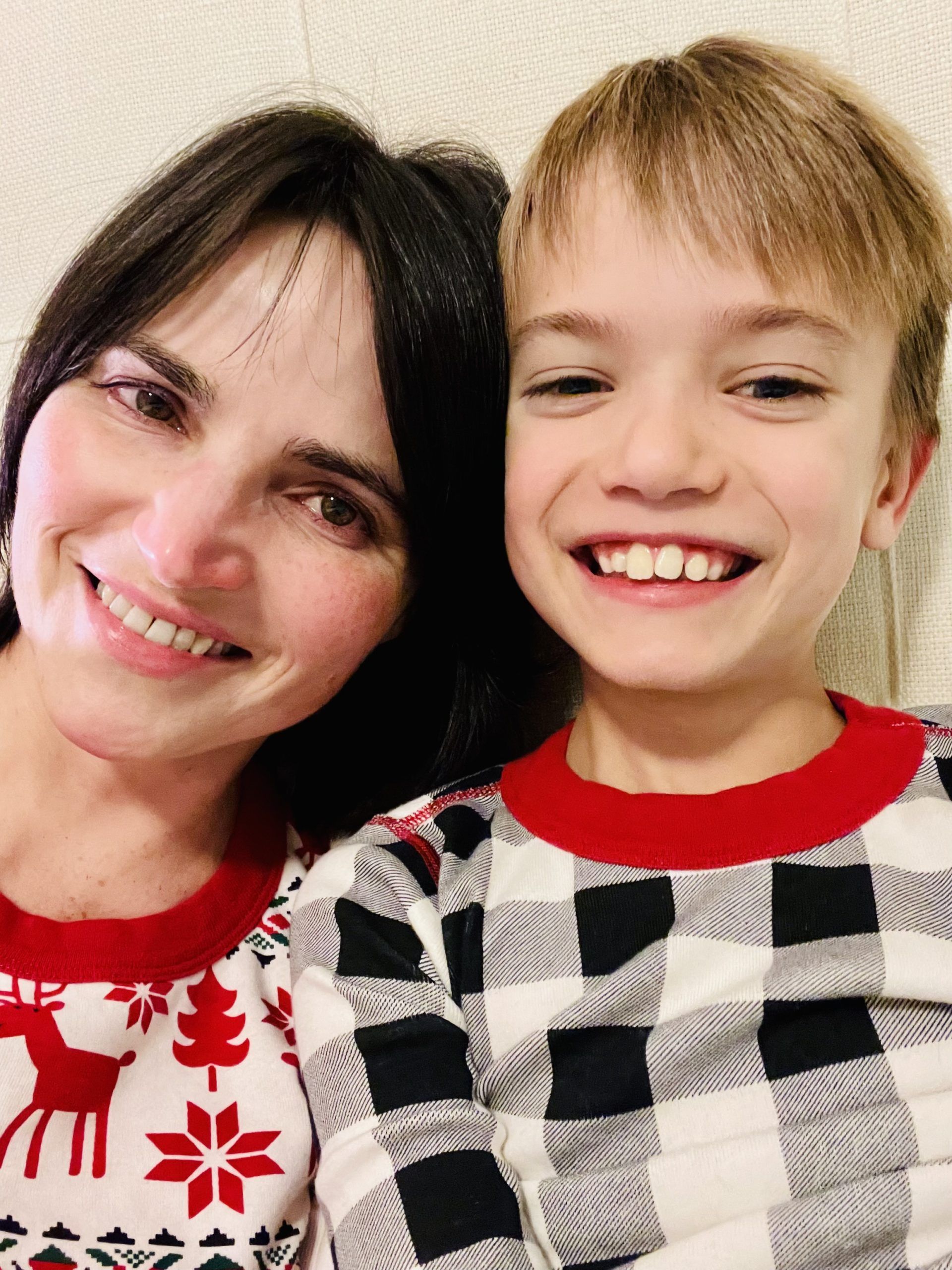Faces of HCM
Ashley Fisher
Ashley is a mother of two, wife and attorney who lives in Baltimore, Maryland. As a child, she was fairly active, and her family was not aware that HCM was part of their history. As she entered her late teens, she tried to stay active but noticed that she became short of breath and felt tightness in her chest even when she ran a small distance at a slow pace. She mistook this for being out of shape and not exercising frequently enough. Walks across her college campus left her red-faced and winded and no amount of "conditioning" improved her exercise tolerance.


When she was about 20 years old, her nurse heard a substantial heart murmur during a routine checkup. This prompted Ashley to follow up with a cardiologist who then diagnosed her with HCM. The diagnosis was far from a relief but it did offer her an explanation as to why she could not participate in athletics to the same extent that her peers could. She was prescribed beta blockers that made her feel tired.
A few years passed and she began to show even more severity in her symptoms. She also began to feel more palpitations and presyncope (the feeling of almost passing out). The symptoms and high-risk factors for sudden death indicated that she would need an ICD (implanted cardioverter-defibrillator). Her first ICD was implanted just one month before she began law school in 2002. In 2005 she got married and while dancing at her reception, her ICD shocked her 6 times. Paramedics arrived and took an EKG, and by that time, she was back in normal rhythm. Interrogation of her ICD showed that she had experienced ventricular tachycardia (VT).
Despite this, she considered herself to be a healthy person who could do whatever she wanted with the exception of a few exercises, as long as she stayed hydrated, took her medication, and watched her exertion level. A few years after having her first child, and under careful supervision of a high-risk OB and her cardiologist, Ashley gave birth to her first child. A year later, she had a few more incidences of ventricular tachycardia that resulted in shocks from her ICD. This second round of ICD shocks - though lifesaving - took an emotional toll.
Ashley had a second, and this time, complicated pregnancy. After giving birth to her second child, she had testing which confirmed that she needed to have an open-heart surgery called a myectomy. She had class 3 heart failure with shortness of breath, arrhythmia, and constant fatigue. After her myectomy, Ashley's symptoms improved to an extent, and she tried to maximize her overall heart health. She began eating a whole food plant-based diet, started walking (slowly) almost daily, and did Pilates weekly to stay as fit as possible. She also cut down on her regular 60-hour workweek in order to manage her stress. These changes, plus medication management and staying in close contact with her cardiologist, allowed her to stay somewhat active and lead a meaningful life while managing her symptoms.
Despite having an ICD and living a healthy lifestyle, Ashley began to notice a change in symptoms in the summer of 2021, including swelling, more fatigue, and greater shortness of breath, and went to her HCM specialist for an evaluation. It was discovered that her HCM had progressed to advanced heart failure with an ejection fraction of between 30-40% (normal for HCM is approximately 65%). She was referred to a heart failure doctor and was put on strong, temporarily effective heart failure medications. The medications were only so effective, and Ashley was given a heart transplant in March 2022. She continues to advocate for advancements in the treatment of HCM for the good of all those affected, including those within her own family.

 Translate
Translate